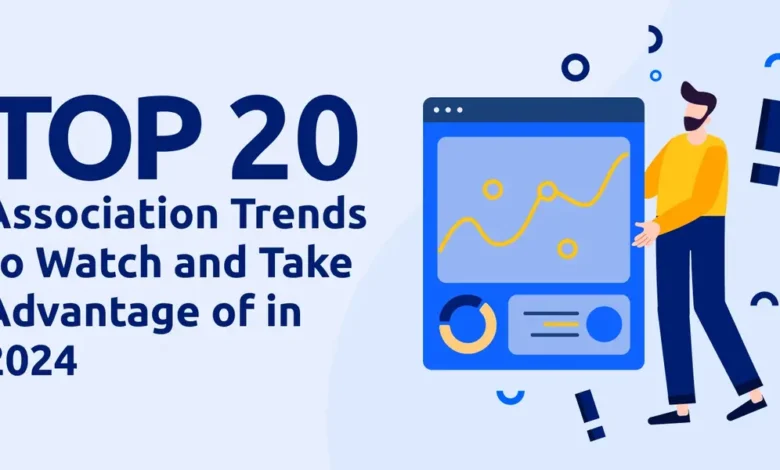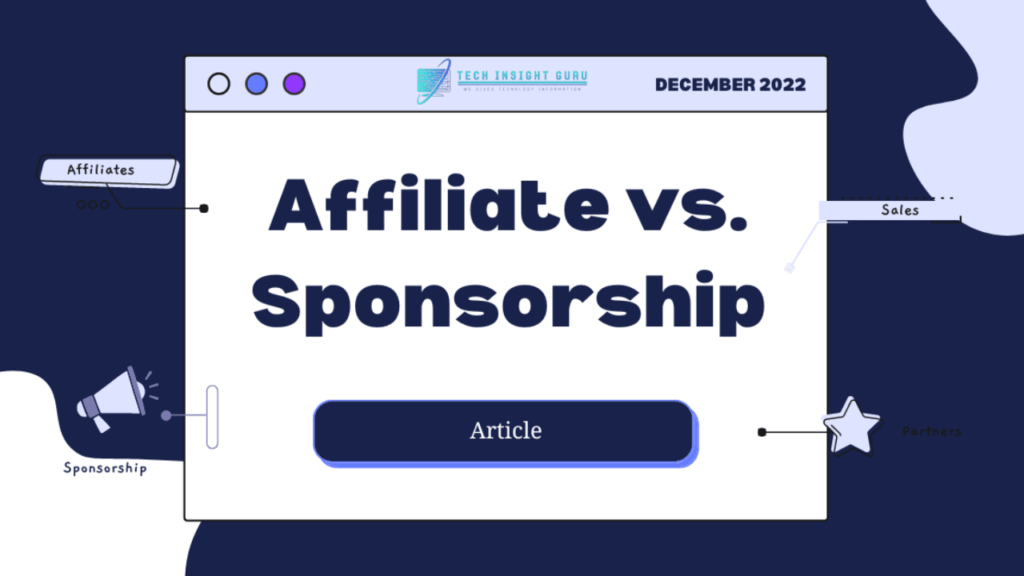
Monetizing Your Virtual Events Website: Attracting Online Attendees and Revenue

Introduction
With the rise of virtual events and online gatherings, there is a tremendous opportunity to monetize your virtual events website. This comprehensive guide explores effective strategies for attracting online attendees and generating revenue from your virtual events.
Making money from a virtual website requires a good way to attract people online and generate income. Focus on creating valuable content and using effective marketing strategies to maximize your success. Create a user-friendly platform that provides seamless recording and sharing capabilities to encourage collaboration.
Track ticket options to offer attendees a variety of options to suit their interests and budgets. Also explore sponsorship opportunities that allow businesses to promote their products or services during the virtual event.
Participate in virtual booths, promotions and webinars to enhance the overall attendee experience and attract sponsors. Leverage data analytics to understand audience behavior to tailor marketing and personalized content delivery. By combining new events, engaging content, and monetization techniques, your virtual website can thrive, attract attendees, and generate revenue for events online.
1. Ticket Sales and Registration and Attendees

Set Ticket Prices: Offer different ticket tiers based on access levels and perks, such as early bird discounts or VIP access. Exclusive Content: Offer premium content or workshops for a higher ticket price to entice attendees.
Maximizing revenue from ticket sales and registrations while maintaining a free model requires a balanced strategy. Follow the ticket options to experience luxury packages while providing free access. Create special offers and benefits for paying attendees to encourage ticket sales. Take advantage of early bird discounts and promo codes to encourage registration. Encourage community participation and encourage further participation by offering free access to some participants.
Partner with partnerships and sponsorships to help increase costs and provide free access to a wider audience. Use analytics to understand audience preferences to create marketing plans for paid and free segments. By finding the right balance between ticket sales, sponsorships and free admission, your event can achieve financial success while encouraging attendance and interaction.
Enhance your virtual event with unique products and products that transcend the digital world. From exclusive merchandise to tech products, virtual giveaways create a connection between attendees and your brand. Participants can enjoy sharing their virtual memories, fostering a sense of community and trust. Consider adding unique, valuable items that match your event theme to make a lasting impression and extend the impact of your event beyond the virtual space. Virtual events not only add excitement, but also turn the meeting into a memorable and shared experience.
2. Sponsorships and Partnerships
Partner with Sponsors: Collaborate with companies or brands relevant to your event’s theme to sponsor your virtual event in exchange for promotion and visibility. Branded Content: Include sponsored sessions or branded content within your event agenda.
Support and collaboration is cooperation between organizations seeking mutual benefit. In business, sponsorship involves a company providing financial support or resources to an individual, event, or organization in exchange for sponsorship. These plans can increase business awareness, reach target audiences, and create positive engagement. Partnership, on the other hand, is a partnership between two or more organizations that share a common goal.
They participate in working together to achieve common goals, joint efforts and resources. Support and collaboration are essential to support business growth, business expansion and community engagement. A successful partnership depends on open communication, effective execution, and a commitment to deliver value to all stakeholders. Whether promoting a sporting event or establishing a joint business venture, these partnerships are powerful tools for building a balanced business and ensuring success.
3. Virtual Exhibition and Vendor Booths
Offer Virtual Booths: Allow vendors and exhibitors to showcase their products or services through virtual booths, charging a fee for booth space.
Networking Opportunities: Facilitate networking sessions between attendees and vendors, providing added value to sponsors.
Turn your virtual event into a successful business by integrating virtual exhibits and vendors. Provide attendees with a flexible virtual environment where they can demonstrate products and services through multimedia content, interactive features and live demonstrations. Encourage participation through meetings, virtual meetings and discussions at all stands now. Create an intuitive navigation system that allows attendees to explore virtual exhibits. Earn money through promotional fees and promotional packages that provide different levels of visibility and advertising.
Encourage attendees to take advantage of special discounts or promotions during the event to increase sales and create excitement among attendees. Use analytics to track booth sales, attendee interactions, and popular items to provide better insight to attendees and events.
Virtual exhibitions have been expanded to attract the attention of exhibitors and visitors. Consider hosting themed exhibits to keep them relevant and engaging. The integration of virtual exhibits and vendor booths not only generates revenue, but also supports the entire event, encouraging meaningful connections between exhibitors and exhibitors in the digital space.
4. Pay-Per-View or On-Demand Access
Record Sessions: Offer on-demand access to recorded sessions or replays for a fee after the event.
Pay-Per-View: Charge a fee for access to specific individual sessions or workshops.
Pay-per-view option and on-demand access to virtual events are important for making money. The pay-per-view model charges users for access to live events, thereby generating direct revenue during the broadcast of the event. This strategy works well for high-demand content.
Providing the desired access allows participants to view the content whenever they want, allowing them to reach a wider audience in a longer period of time. Follow a mix that appeals to a wide range of interests, combining live pay-per-view with on-demand viewing options after the event.
Carefully consider your target audience, the nature of your campaign, and the specific content to determine the most effective model. Pay-per-view and on-demand strategies can be used to optimize revenue and make the virtual event more efficient and effective while providing convenience to the audience.
5. Membership or Subscription Model
Create Membership Plans: Offer premium access to all your virtual events for subscribers or members who pay a monthly or annual fee.
Exclusive Benefits: Provide exclusive benefits like early event access or priority registration to members.
When monetizing a virtual event platform, it is important to decide on the membership model or subscription model.
The membership model involves users paying a one- time fee to gain access to events or premium content, thus promoting a sense of community and fairness.
This approach is best for organizations with a consistent event schedule and specific target audiences. In contrast, the subscription model requires users to pay an ongoing fee for access to various events and content, providing a recurring revenue stream. Subscriptions are designed for platforms that provide active and diverse content that appeals to a wider audience.
Carefully consider your content offering, audience engagement goals, and event frequency to determine whether an affiliate or model would be better suited for your event. Test the virtual platform, ultimately increasing revenue and user satisfaction.
6. Virtual Event Swag and Merchandise
Sell Branded Merch: Offer event-related merchandise such as t-shirts, mugs, or virtual event swag to participants.
Limited Edition Items: Create limited-edition items for your event, increasing their appeal and value.
Increase the monetization potential of your virtual event by offering virtual prizes and merchandise. Enhance the attendee experience by offering unique products such as virtual themed apparel, accessories and digital products. Create an online store where attendees can purchase these exclusive products and turn their virtual engagement into a memorable and lasting one.
Consider limited edition editions and bundles to accelerate sales and increase sales. Provide customization options so attendees can customize their products to relate to the event. Leverage strategic partnerships with suppliers to improve production costs and maximize profits. Selling a virtual event can work not only as a source of income but also as a business tool, expanding your event and creating a sense of community with attendees.
Enhance your virtual event with unique products and products that transcend the digital world. From exclusive merchandise to tech products, virtual giveaways create a connection between attendees and your brand. Participants can enjoy sharing their virtual memories, fostering a sense of community and trust. Consider adding unique, valuable items that match your event theme to make a lasting impression and extend the impact of your event beyond the virtual space. Virtual events not only add excitement, but also turn the meeting into a memorable and shared experience.
7. Virtual Event Consulting and Services
Offer Consulting Services: Provide consulting services to businesses or organizations looking to host their virtual events.
Event Planning Services: Offer event planning and management services for those who need help organizing their virtual events.
Increase the success of your virtual events by offering consulting and professional services. We provide expertise in event planning, technology integration and audience engagement to guide clients in creating amazing virtual experiences. Provide personal consultation to understand specific project plans and adjust solutions accordingly.
Services will include platform selection, content strategy and support services to ensure successful implementation. Highlight the benefits of the virtual format, such as expanded coverage and analytics-driven insights.
Emphasize the importance of creating interactive and engaging experiences to engage your online audience. Offer your consulting services as a one-stop solution that includes pre-planning, on-site support and post-event analysis.
By offering consulting and virtual services, you can position your business as an important partner in a complex digital environment, thereby increasing the overall success and impact of your event.
8. Virtual Event Sponsorship Packages
Create Sponsorship Packages: Offer different sponsorship packages with varying benefits and promotional opportunities for sponsors.
Tailor Packages: Customize packages to suit the specific needs and objectives of different sponsors.
To make good money, it is very important to create an attractive virtual promotional package. Packages are designed to meet different budgets and provide sponsors with different types of exposure and participation. Including prominent logo placement, sponsored meetings and virtual booth space for increased visibility. Provide sponsors with access to attendee information for marketing and communications plans.
Provide value and engagement to your audience by customizing the package to fit the theme of your virtual event. Offer special promotional benefits such as pre-launch ads, exclusive content or interactive content to encourage participation. Consider multiple events for long-term partnerships to provide ongoing engagement for sponsors. By creating an interesting and engaging virtual promotional package, you can not only generate revenue, but also create valuable partnerships that will lead to the success and stability of your virtual event.
Conclusion
Monetizing your virtual events website requires a strategic approach that provides value to both attendees and sponsors. By offering various ticket options, forming partnerships with sponsors, providing virtual booths, and exploring subscription models, you can attract online attendees and generate revenue for your virtual events. Remember to focus on creating engaging and valuable content that resonates with your target audience to ensure the success of your virtual events and maintain a positive reputation in the virtual events community.
In summary, making good money on the virtual web requires the best way to impress the online audience and generate income. The digital environment offers many opportunities for success, but it is important to think about integration, accessibility and value.
First of all, it is very important to create interesting content. Customize your virtual event to meet your audience’s unique needs and interests. Good and relevant content is like a magnet; attracts attendees online and keeps them engaged throughout the event.
We make accessibility a second priority. Implement a user-friendly interface, ensure a seamless registration process, and optimize across devices to make it more profitable. An inclusive approach not only attracts different audiences but also improves the overall user experience.
Consider a competitive pricing model with free access and premium options to increase your revenue. Offering exclusive content, teleconferences, or early access as part of a great package can encourage attendees to invest in more experiences.
Additionally, sponsorships and collaborations can increase revenue. Partner with brands that match your campaign content and values to ensure they reach your target audience.
In fact, the best virtual event effectively brings attendees together and generates revenue. By focusing on content, accessibility, cost structure, and effective collaboration, your virtual event website can become a sustainable platform that not only attracts people’s online participation but also generates significant revenue in the digital space.

